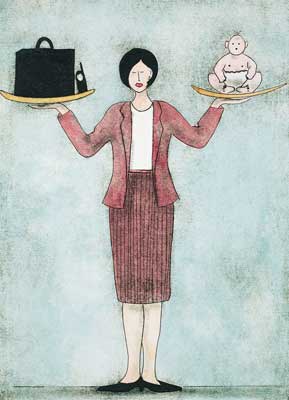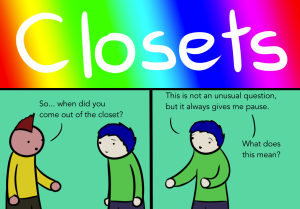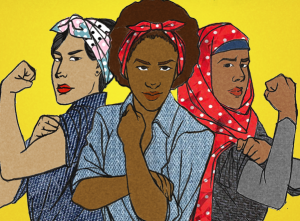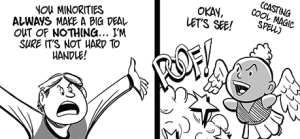Originally published on Babydust Diaries and cross-posted here with permission.
So, in case you live under a rock (or don’t live in the US) feminist Hilary Rosen recently started a firestorm by saying of Mitt Romney (presidential candidate)’s wife that “she never worked a day in her life.”
I understand what Rosen was trying to say while I disagreed with her wording (and her wording on her follow up post where she calls staying home a “luxury”). Regardless, everyone is in an uproar about which job is harder, which job is more worthy, and which job is the most maligned by society.
Sigh.
Women against women really makes me sad. Having been a WOHM and a SAHM I can tell you something I have learned. The mothering world is not divided between mothers who work and mothers who parent all day.
The world is divided into women who are fulfilled by their current circumstances and those who are not.
When I was a WOHM it was daily difficult to convince myself that what I was doing was best for my family. I was miserable, honestly. I had moments where it felt like it was working because I did actually love what I did and who I did it for (I was a librarian for the freakin’ space program! How cool is that?) but mostly my heart ached to not be the primary, daily caregiver of my children. I needed to be home.
I have very good friends that were anxious for their maternity leaves to be over! They needed the fulfillment of their job. They don’t want to vomit when they take their kids to daycare – they really like the things they learn and that they see mommy as a working woman. I know for a fact they would be miserable if they “had” to be at home (due to lay off, illness, etc.).
The fact is that a fulfilled mother is a good mother. Now, I’m not saying everyone doesn’t have days when they wish they were in the other camp but for the most part happy mothers are where they feel they need to be to be the best parents.
I’m not a better parent because I’m at home – I’m a better parent because I love where I’m at and I throw myself fully into it. You are not a better parent because you work – You are a better parent because you love what you do and throw yourself fully into it.
All of us are valuable to society because we are raising the next generation! We all deserve the support and accolades of society.
The sad circumstance is when a woman is not in a place that fulfills her and thus maximizes her mothering potential. This is where I want to see OPTIONS for women.
- good childcare options and tax incentives so mothers can work if they need to
- good off-ramping/on-rampling work practices for mothers who choose to stay home and tax laws/divorce laws that do not punish women for staying home
- MOST IMPORTANT – policies that throw away this dichotomy and allow women to find fulfillment through both working and childrearing if they wish:
- maternity leave
- meaningful, well paid, part time work
- true work flexibilities like telework (added thanks to Sarah: and bring your baby to work programs)
- tax law that does not penalize the second earner in a family
- excellent child care opportunities (and well paid, valued child care workers)
When we let the argument devolve into SAHM vs. WOHM we lose the opportunity to make valuable change.
Paige Stannard is a Staff Writer for Everyday Feminism. She’s a former NASA research librarian happy to be home raising her 3 IVF babies after nearly a decade of infertility. She blogs about infertility, parenting, and women’s issues at Baby Dust Diaries as well as being the founder of the gentle discipline site ParentingGently.com and co-founder of the breastfeeding rights site NursingFreedom.org. She likes to cook and sew and has, in general, become her mother. Happily. Follow her on Twitter @babydust.
Search our 3000+ articles!
Read our articles about:
Our online racial justice training
Used by hundreds of universities, non-profits, and businesses.
Click to learn more





















